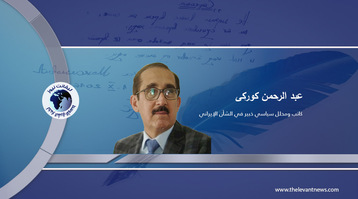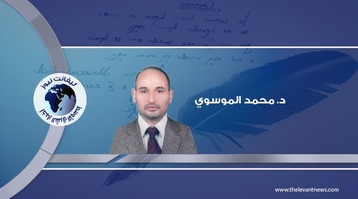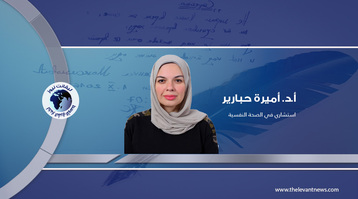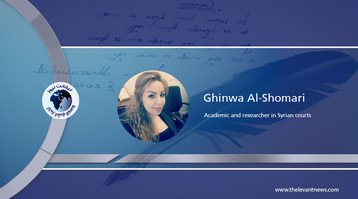-
MI6 chief gives rare public insight into the state of the world

Moore was giving his first public address later that day to the London-based Institute of Strategic Studies and it made sense to do an interview beforehand and to attract attention to his key messages. Obviously there were a good number of references to the latest James Bond film – No Time to Die - and the MI6 chief said he had really enjoyed it – while sensibly avoiding giving too much away - “spoilers” - for people who hadn’t yet seen it.
While Bond’s boss goes by the name M, Moore follows the tradition of being known as C, which stands for the surname of the first head of MI6, who was called Mansfield Cummings, who wrote by hand in green ink. Back then in 1909, that was a dark secret. Moore revealed that he followed C’s tradition of typing computer documents in green.
He also listed China, Russia, Iran and international terrorism as the "Big Four" priorities for western intelligence agencies and as “elements of continuity”. Moore joined Britain’s legendary secret service 34 years ago , in the final period of the Cold War and said he had seen “extraordinary change” since then.
But the principal takeaway from both his BBC interview and speech was that the UK intelligence community needed to do more to reach out and work with tech companies to counter threats posed by Beijing and Moscow who seek to gain advantage by mastering artificial intelligence and other emerging technologies.
It would become necessary to “tap into” the global technology industry, through initiatives such as the UK National Security Investment Fund, which earlier this year put £100m into seven venture capital funds aimed at backing hi-tech start-ups.
“I cannot stress enough what a sea change this is in MI6’s culture, ethos and way of working, since we have traditionally relied primarily on our own capabilities to develop the world-class technologies we need to stay secret and deliver against our mission,” Moore elaborated. “We must become more open to stay secret.”
It is no secret that MI6, like the CIA, has been concerned for some time that China, in particular, could leapfrog the traditional technological advantages enjoyed by the west, and which underpins its intelligence activities. Rapid improvements in Beijing’s cyber capacity over the past five years have led some to conclude it has a capability for global surveillance.“
Both China and Russia are both pouring money and ambition into mastering artificial intelligence (AI), quantum computing and synthetic biology, because they know that mastering these technologies will give them leverage. Synthetic biology gives researchers precision tools to manipulate living organisms. Its emergence has prompted a US warning that its existence “enhances and expands” opportunities to create bioweapons, although – despite the apparent reference to Covid-19 – Britain’s intelligence services believe the most likely scenario is that the disease came to humans via animals.
Russia has also been rapidly developing its hacking capabilities and has been accused by the west of a sophisticated hack of the SolarWinds software to spy on the US government – and of allowing hackers based in the UK to try to extort money from businesses in so-called ransomware attacks. In October it emerged that MI6, along with Britain’s other security agencies, MI5 and GCHQ, had signed a deal with US tech and shopping giant Amazon to host their cloud computing. “Unlike Q in the Bond movies, we cannot do it all in-house,” as Moore explained.
Biometric data and facial recognition, for example, have made it far harder for MI6 officers to assume false identities in hostile countries without being recognised and exposed. Moore also expressed concern that Beijing could make a “miscalculation” due to overconfidence in its own global status. “The tectonic plates are shifting as China’s power and its willingness to assert it grows,” he said. He singled out the Communist regime’s determination to resolve the Taiwan issue, by force if necessary, as “a serious challenge to global stability and peace.”
Moore was the first member of the British secret service to openly use Twitter, when on 2 October 2020 his tweets from his first day as chief of MI6 generated headlines because of their humorous hashtags and emojis. He expressed fulsome thanks to both his BBC interviewer and to the IISS thinktank for hosting his speech.
In the big picture of what is expected to happen, Moore predicted that the world may experience more technological progress in the next decade than in the last century, with a disruptive impact equal to the industrial revolution.
Obviously, given the public nature of his appearances, radical changes in the way MI6 works will not go unnoticed by Britain’s -and other western countries – enemies. When a spymaster speaks out it is naïve to imagine that nobody is listening. But perhaps that was his clandestine intention…
(ENDS)

BU: IAN BLACK
You May Also Like
Popular Posts
Caricature
Syrians' concerns now
- December 10, 2024
Syrians' concerns now #Syria
#Bashar_al-Assad
#Liberation_of_Syria
#Syrians
#Future_of_Syria
#Levant_News

opinion
Report
ads
Newsletter
Subscribe to our mailing list to get the new updates!



















